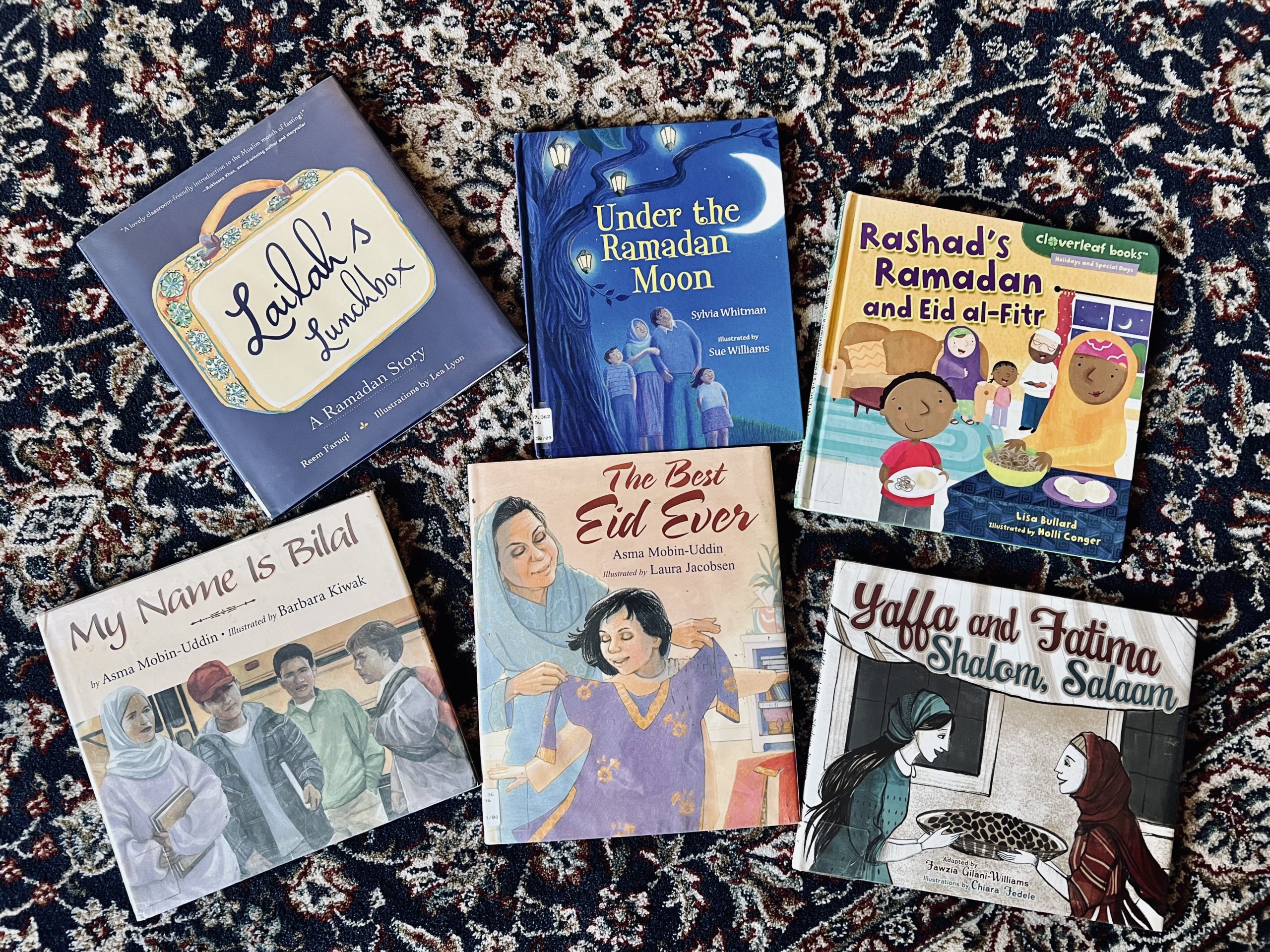
One of my elementary kiddos began fasting for Ramadan for the first time this season. For a few days, she and I snuck away during snack time to play with markers and stickers while her classmates ate.
It was during these moments together that she made portraits for her classmates, taking their favorite colors and style of earrings into consideration as she worked. She made birthday cards and notes of encouragement for others. We giggled and told stories.
It was also during these times that she taught me her own lessons about Ramadan, this integral part of her being and identity.
As we spent those hours together over days, I asked her questions about Ramadan. How long do you fast? Is this your first time fasting? Is it easy or difficult? What do you eat in the morning?
She answered each of my questions with an exuberance to share even more.
All day and until the full moon returns.
I tried when I was younger, but this is my first real time trying.
It’s SO HARD.
I love Nutella and bread every morning. I get up early.
She got caught up answering my Ramadan questions one day. The words tumbled out of her mouth until she stopped herself, “Wait, what do you already know about Ramadan?”
I laughed and admitted not much, but that I enjoyed learning from her. I told her about the Eid feasts I’d been invited to before, and we talked about our favorite dishes.
Another day as we played, I asked her about her school day.
She smiled and told me about the Henna tattoo project her class had learned about in art that day in honor of Arab-History month. She lit up, “I just love when people learn about my culture. I love my culture so much.”
She spoke of Henna tattoos and Ramadan and Arab culture, yes, but she showed me something deeper in this moment: the beauty of being known in a safe place.
This 9 year-old who whose heart lives in Nashville, but longs for Yemen and desires to be understood, is not so much unlike you and me.
We all need a non-accusatory place to stand. To share without fear of reprimand or correction. To feel safe and supported, despite the ways in which we are different or don’t match up. To believe someone cares enough to ask questions and wait for the answers. To feel like we belong. To know that someone is listening. To know our story isn’t a waste.
I checked out some picture books about Ramadan and Arab-culture from the library later that week.
I brought them to after-school, looked through them, picked a couple to incorporate into our lessons, and wondered if it was okay for me, a Christian, to read books about Ramadan and the lives of our Muslim neighbors. Is it okay to learn about this other religion? To ask genuine questions about it? To wait graciously for the responses?
My answer came in the form of that sweet girl whose face lit up at the realization that someone thinks her story is beautiful and cares to hear it.
Is it okay to take interest in someone else’s life, even if it looks different than my own? I think the answer is yes.
Because in that space of conversation and questioning, of genuine interest and concern, love is created. A space of belonging is carved out and our friendship grows. I learn about this girl that God loves infinitely more than I ever could, fully trusting that the nothing can pluck me from His hand – including listening to her story.
And if anyone in this world can create love and carve spaces of belonging, it’s the power of the Gospel at work in people like us.
Dear follower of Christ, it’s okay to talk about the heritages and beliefs unlike our own.
We need not worry about being struck down for listening. For putting in the work of learning about the people we desire to love even better; the very same people that God loves infinitely more.
So, here are picture books I used to explore more about Ramadan and show my sweet Yemeni student that I care about her story too. May one of them open your curiosity for the world and your faith in the God who carries us through our questioning a little wider.
- Lailah’s Lunchbox. A picture of how the support and safety of loving, trusted people in our lives propel us to courageously live our story.
- Under the Ramadan Moon. A poetic journey through Ramadan and the significance of the moon in its tale.
- Rashad’s Ramadan. An easy, illustrative walk through of a Muslim friend’s Ramadan.
- The Best Eid Ever. A look at the journey of Eid, a holiday celebrated by our Muslim neighbors every year.
- Yaffa and Fatima. The tale of deep friendship between a Jewish girl and a Muslim girl, and how they learn to look after each other despite their differences.
- My Name is Bilal. The story about the new kid who feels embarrassed of his heritage until a teacher meet him in the identity-struggle with compassion and respect.
